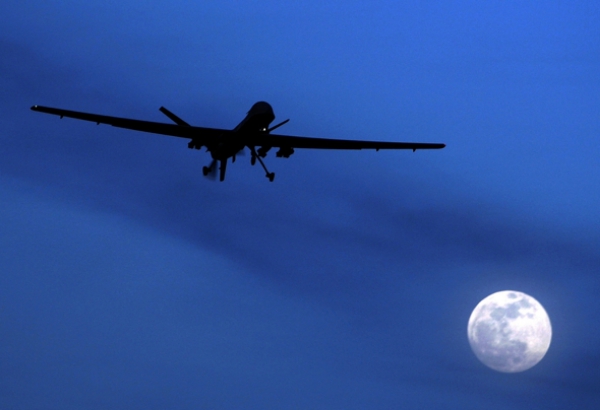The Obama administration is considering a request from Turkey to base a fleet of Predators on Turkish soil for counterterrorism operations in northern Iraq. The decision could strengthen a diplomatic alliance but drag the United States deeper into a regional conflict.
The U.S. military has flown unarmed Predators from Iraqi bases since 2007 and shared the planes’ surveillance video with Turkey in a secretive joint crackdown against fighters of the Kurdistan Workers’ Party, or PKK. But unless a new home for the Predators is found, the counterterrorism partnership could cease by Dec. 31, when all U.S. forces are scheduled to withdraw from Iraq.
The Obama administration has not made a decision on the Turkish request, said senior U.S. military officials.
Previously undisclosed diplomatic cables show Turkey has become highly dependent on Predators, U-2 spy aircraft and other U.S. intelligence sources in its conflict with the PKK.
The classified diplomatic cables, obtained by the anti-secrecy Web site WikiLeaks, reveal that Turkish officials have repeatedly pressed their American counterparts to escalate their involvement against the PKK and eradicate the group before U.S. forces leave Iraq.
“Before your withdrawal, it is our common responsibility to eliminate this threat,” Turkish Foreign Minister Ahmet Davutoglu told Army Gen. Ray Odierno, then the top U.S. commander in Iraq, in a February 2010 meeting in Ankara, according to a cable summarizing the meeting.
Odierno and other U.S. officials agreed to Turkish requests to adopt an “enhanced joint action plan” against the PKK, according to other cables. But the U.S. military has tried to keep its involvement limited, while concealing the details. It has continued to fly surveillance missions, share intelligence and help select targets, but it has resisted Turkish pressure to bomb or attack Kurdish militants directly, the cables show.
It’s unclear whether U.S. or Turkish officials are seeking formal permission from Iraq to continue the drone flights, or whether Baghdad would simply turn a blind eye to the Predators when they cross into northern Iraq.
If Iraq objected to the flights as a violation of its sovereignty, the unmanned aircraft could hover in Turkish airspace and use cameras to peer miles across the border. There is little to prevent the Predators from making incursions, however; Iraq has only a fledgling air force to patrol its skies.
Fresh details, however, are contained in the U.S. diplomatic cables, which show that the hub of the effort is a “combined intelligence fusion cell” in Ankara that is staffed 24 hours a day by U.S. and Turkish military personnel. The cell receives video feeds from Predators flying over suspected PKK camps in northern Iraq, according to the cables. The U.S. military usually operates the Predators between 12 and 16 hours a day, the cables show. In addition to the UAS, the U.S. military shares imagery from U-2 spy planes, RC-135 and EP-3 reconnaissance aircraft, as well as RQ-4 Global Hawks, a high-altitude surveillance drone.
The fusion cell in Ankara opened in November 2007 after then-President George W. Bush agreed in a meeting with Turkish Prime Minister Recip Tayyip Erdogan to help go after the PKK. Before that, Turkey had complained bitterly about a U.S. reluctance to use its forces in Iraq to hunt down PKK fighters.
More significantly, Turkey has tried to buy its own armed drones from the United States, seeking to purchase MQ-9 Reapers, a larger and more modern version of the Predator. The Bush and Obama administrations have supported the request, but Congress has withheld approval so far. Some legislators are reluctant to sell the aircraft to Turkey given Ankara’s deteriorating relations with Israel, a close U.S. ally.
Source: The Washington Post


The aircraft pictured is, in fact, an MQ-9 Reaper, not an MQ-1 Predator.